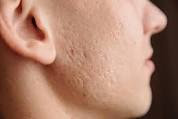Unveiling the Mystery of Scalp Fungal Infections: Causes, Symptoms, Treatment, and Prevention
The scalp, covered by a dense forest of hair, can sometimes become a battleground for fungal infections. These infections, caused by various fungi species, can lead to discomfort, itching, and even hair loss if left untreated. In this comprehensive blog, we'll embark on a journey into the world of scalp fungal infections, exploring their causes, symptoms, treatment options, and strategies for prevention.
**Understanding Scalp Fungal Infections:**
Scalp fungal infections, also known as tinea capitis or ringworm of the scalp, are fungal infections that affect the skin and hair follicles of the scalp. These infections are commonly caused by dermatophyte fungi, including Trichophyton and Microsporum species, which thrive in warm, moist environments. While scalp fungal infections can occur in people of all ages, they are most common in children, particularly those who have close contact with infected individuals or animals.
**Causes of Scalp Fungal Infections:**
Several factors can contribute to the development of scalp fungal infections, including:
1. **Direct Contact:** Scalp fungal infections are highly contagious and can spread through direct contact with infected individuals, contaminated objects, or animals.
2. **Poor Hygiene:** Inadequate scalp hygiene, such as infrequent washing or sharing combs, brushes, or hats, can increase the risk of fungal infections.
3. **Warm, Moist Environment:** Fungi thrive in warm, moist environments, making sweaty or humid conditions conducive to their growth.
4. **Weakened Immune System:** Individuals with weakened immune systems, such as those with HIV/AIDS or autoimmune diseases, are more susceptible to fungal infections.
5. **Hair Manipulation:** Certain hair practices, such as wearing tight hairstyles or using hair products that contain harsh chemicals, can irritate the scalp and create an environment conducive to fungal growth.
**Symptoms of Scalp Fungal Infections:**
The symptoms of scalp fungal infections can vary depending on the type of fungus involved and the individual's immune response. Common symptoms include:
- **Itching:** Persistent itching of the scalp is a hallmark symptom of scalp fungal infections and may be accompanied by redness or irritation.
- **Flaky Scalp:** Scalp fungal infections can cause flaky, scaly patches on the scalp, similar to dandruff but often more severe.
- **Hair Loss:** In some cases, scalp fungal infections can lead to hair loss or thinning, particularly if the infection is left untreated or becomes chronic.
- **Bald Patches:** Severe cases of scalp fungal infections may cause the formation of bald patches or areas of broken hair on the scalp.
**Treatment Options for Scalp Fungal Infections:**
Treatment for scalp fungal infections typically involves antifungal medications, which may be administered orally or topically. Some common treatment options include:
1. **Oral Antifungal Medications:** Prescription oral antifungal medications, such as griseofulvin, terbinafine, or fluconazole, may be prescribed to treat severe or recurrent scalp fungal infections.
2. **Topical Antifungal Creams:** Over-the-counter or prescription antifungal creams, lotions, or shampoos containing ingredients such as ketoconazole, selenium sulfide, or ciclopirox, can help to eliminate fungal infections and relieve symptoms.
3. **Antifungal Shampoos:** Medicated shampoos containing antifungal agents can help to cleanse the scalp and reduce fungal growth, particularly in cases of mild to moderate scalp fungal infections.
4. **Scalp Treatments:** In some cases, scalp treatments containing antifungal agents or corticosteroids may be prescribed to reduce inflammation, itching, and irritation associated with scalp fungal infections.
5. **Oral Steroids:** Oral corticosteroids may be prescribed to reduce inflammation and itching associated with severe or chronic scalp fungal infections, although they are typically used in combination with antifungal medications.
**Preventive Measures:**
Preventing scalp fungal infections involves adopting healthy scalp hygiene practices and minimizing exposure to potential risk factors. Some effective preventive measures include:
1. **Maintain Good Scalp Hygiene:** Wash your hair regularly with a gentle shampoo and warm water to remove dirt, oil, and sweat from the scalp. Avoid sharing combs, brushes, or hats with others, and ensure that hair accessories are clean and hygienic.
2. **Avoid Close Contact:** Minimize close contact with individuals or animals who have scalp fungal infections, and avoid sharing personal items such as towels, bedding, or clothing.
3. **Keep the Scalp Dry:** Keep your scalp clean and dry, particularly after sweating or swimming, to reduce the risk of fungal growth. Avoid wearing tight hairstyles or hats that can trap moisture and create a warm, humid environment.
4. **Use Antifungal Products:** Consider using antifungal shampoos or scalp treatments regularly, especially if you are prone to scalp fungal infections or have a history of fungal infections.
5. **Boost Immune Function:** Maintain a healthy lifestyle with regular exercise, balanced nutrition, adequate sleep, and stress management to support your immune system and reduce the risk of fungal infections.
**Conclusion:**
Scalp fungal infections can be uncomfortable and unsightly, but with prompt recognition, appropriate treatment, and preventive measures, they can be effectively managed. By understanding the causes, symptoms, treatment options, and preventive strategies for scalp fungal infections, you can take proactive steps to protect your scalp health and maintain a thriving head of hair. If you suspect you may have a scalp fungal infection or are experiencing persistent symptoms, don't hesitate to consult with a dermatologist or healthcare professional for evaluation and guidance. Your scalp health is essential, and with the right care and attention, you can enjoy a lifetime of healthy, beautiful hair.
Call now
on our Mobile 8669086098 to book an appointment
Kindly visit our website Scalp Fungal Infection to know more.
#scalpfungal #fungalinfection #scalpringworm #itching #FlakyScalp #hairloss #bladpatches #scalptreatment #tineacapitis




Comments
Post a Comment